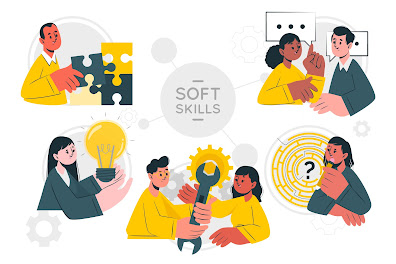Continuous Improvement in Vocational Assessment through Level 3 CAVA
Introduction:
In the dynamic landscape of vocational education, the concept of continuous improvement is pivotal to ensuring that assessment practices remain effective, relevant, and responsive to the evolving needs of learners and industries. Level 3 CAVA (Certificate in Assessing Vocational Achievement) not only equips assessors with essential skills but also instils a culture of reflection, adaptation, and enhancement within the assessment process. In this blog, we will explore the significance of continuous improvement in vocational assessment and how Level 3 CAVA guides assessors on this transformative journey.
Understanding Continuous Improvement in Vocational Assessment:
Continuous improvement is a cyclical process that involves ongoing evaluation, reflection, and refinement of assessment practices. In the context of vocational assessment, this approach recognizes that education, industries, and learner needs are dynamic and require a responsive and adaptable assessment framework. Continuous improvement ensures that assessment practices align with the latest industry standards, technological advancements, and educational policies.
Level 3 CAVA: A Foundation for Continuous Improvement
1. Reflective Practice:
Level 3 CAVA places a strong emphasis on reflective practice. Assessors are encouraged to regularly evaluate their approaches, methodologies, and outcomes. Reflection goes beyond the immediate assessment process, extending to broader considerations such as the impact of assessments on learners' progress and the relevance of assessment criteria to industry expectations.
2. Adaptation to Changing Educational Landscapes:
The vocational education sector is subject to continuous change, be it in teaching methodologies, curriculum design, or industry requirements. Level 3 Certificate in Assessing Vocational Achievement equips assessors with the skills to stay informed about these changes and adapt their assessment strategies accordingly. This adaptability ensures that assessments remain current and aligned with the skills demanded by the evolving job market.
The Continuous Improvement Cycle in Level 3 CAVA
1. Assessment Design and Planning:
The journey of continuous improvement begins with thoughtful assessment design and planning. Level 3 CAVA provides assessors with the tools to critically analyze the goals of assessments, considering both the overarching learning objectives and the specific needs of individual learners.
2. Implementation and Observation:
As assessments are executed, Level 3 CAVA encourages assessors to observe the process and gather data on its effectiveness. This phase involves considering factors such as learner engagement, assessment logistics, and the appropriateness of assessment methods in achieving desired outcomes.
3. Feedback and Evaluation:
Providing constructive feedback is a cornerstone of continuous improvement. Level 3 CAVA emphasizes the importance of gathering feedback from learners, peers, and industry stakeholders. Assessors are taught to use this feedback to evaluate the success of assessments and identify areas for enhancement.
4. Reflection and Adjustment:
Reflective practice takes center stage in Level 3 CAVA as assessors analyze the feedback and evaluation data. This phase involves considering what worked well, what could be improved, and how assessments align with both educational goals and industry expectations. Based on this reflection, assessors make informed adjustments to their assessment strategies.
The Role of Technology in Continuous Improvement
Level 3 CAVA recognizes the transformative role of technology in education. Assessors are guided on incorporating technological tools and platforms into assessments to enhance efficiency, gather real-time data, and adapt to the digital demands of modern vocational environments. The integration of technology aligns with the continuous improvement ethos, ensuring assessments remain contemporary and technologically relevant.
Benefits of Continuous Improvement in Vocational Assessment:
1. Enhanced Learning Outcomes:
Continuous improvement in assessment practices directly contributes to enhanced learning outcomes. By regularly evaluating and adjusting assessments, Level 3 CAVA assessors ensure that learners are engaged, motivated, and equipped with the skills necessary for success in their chosen vocations.
2. Alignment with Industry Standards:
Industries evolve, and so must vocational assessments. Level 3 CAVA supports assessors in keeping assessments aligned with the latest industry standards, ensuring that learners graduate with skills that meet or exceed industry expectations.
3. Professional Development:
The continuous improvement process is not only beneficial for learners but also for assessors themselves. Level 3 CAVA promotes ongoing professional development by encouraging assessors to seek out new methodologies, engage in peer collaboration, and stay informed about industry trends.
Challenges and Solutions in Implementing Continuous Improvement
1. Resistance to Change:
Some assessors may be resistant to change, especially if they have been following established assessment practices for an extended period. Level 3 CAVA addresses this by fostering a culture of openness to innovation and showcasing the positive outcomes that can result from continuous improvement.
2. Resource Constraints:
Limited resources can pose a challenge to implementing continuous improvement. Level 3 CAVA offers strategies for maximizing available resources, leveraging technology, and collaborating with colleagues to overcome these challenges without compromising the quality of assessments.
Conclusion
Continuous improvement is not just a concept; it is a philosophy that transforms vocational assessment from a static process into a dynamic, responsive, and ever-evolving journey. Level 3 CAVA serves as a guiding force, empowering assessors to reflect on their practices, adapt to changes, and enhance the assessment process over time. Through this approach, vocational assessments not only meet the current needs of learners and industries but also remain future-ready, contributing to the ongoing success of vocational education and the individuals it serves. As Level 3 CAVA assessors embrace continuous improvement, they become catalysts for positive change, ensuring that the impact of vocational assessments extends far beyond the classroom and into the careers of those they assess.
.jpg)


Comments
Post a Comment